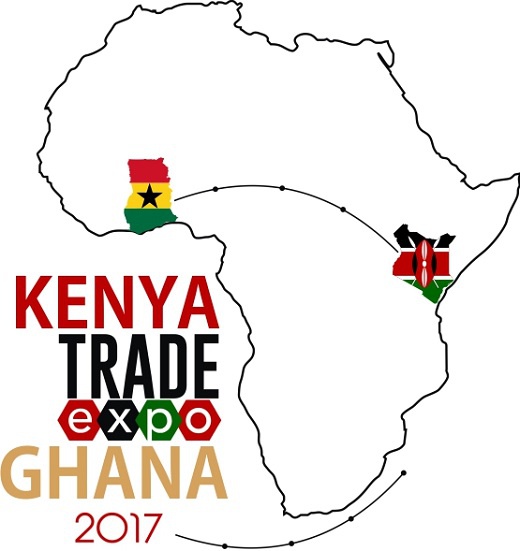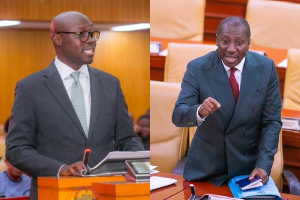Recent data from economists at the African Development Bank (AfDB) show that trade among African countries is alive and growing, expanding from 10% in 2000 to about 16% in 2014. Despite this modest improvement, the volume of intra-Africa trade is a paltry US$ 2 trillion when juxtaposed alongside trade between Africa and the rest of the world, which stands at US$77 trillion.
The reasons for this trade disequilibrium are obvious. Africa is largely disconnected from itself no thanks to its poor infrastructure, restrictive immigration policies, corruption, failure to formalize informal trade, and unclear customs and immigration rules.
Fresh facts emerging however suggest a slightly improving scenario. Data for 2003/14 shows that intra-African finance is a significant source of foreign investment in low-and-middle-income countries such as Burundi (79%), Namibia (42%), Rwanda (62%), South Sudan (64%) and Uganda (45%).
Intra-Africa tourism barely exists but West Africa now accounts for 40% of the total African, Caribbean and Pacific trade with the European Union.
The 15-member nations of the Southern African Development Community (SADC) account for about 45% of Africa’s trade with the rest of the world. In East Africa, Kenya’s top ten export markets are Uganda, Tanzania, Netherlands, USA, UK, Pakistan, DR Congo, UAE, South Sudan and Egypt. The five African countries here account for over 30% of Kenya’s total exports. Kenya’s tea makers are however yet to make a serious push into West Africa’s combined market of over 300 million people.
To reverse this scenario, national and regional policy frameworks need to be strengthened and harmonized. This is a job for governments, companies and citizens alike.
In my opinion, what is required to make intra-Africa trade a reality is a deliberate action by private sector players that seek to ensure these bi-lateral agreements do not remain documents collecting dust in our embassies government offices. The Biennial Kenya Trade Expo Ghana has taken the initiative to fast-track the benefits of these agreements by giving businessmen on both sides of the Rift Valley a platform to explore opportunities in each country.
A recent visit to Kenya by Ghana’s Business Development Minister, Ibrahim Mohammed Awal, has reinvigorated relations between Kenya and Ghana, ensuring that Ghana-Kenya trade opportunities are fully exploited with a view to delivering tangible socio-economic benefits.
The visit was climaxed by a panel discussion on opportunities in Ghana at the Capital Club East Africa. It served as a platform for the Minister to showcase and pitch Ghana’s trade attractions to discerning members of Nairobi’s business community. “Ghana is ripe and open for business with Kenya,” Awal said.
The Ghanaian authorities continue to facilitate ways to ensure that private sector players and investors experience continued ease of doing business. These initiatives include industrialization and job creation through building one factory in every district. This is a prime opportunity for Kenyan manufacturers. There are also policies in place and bodies such as the Free Zones which are meant to enable manufacturers from outside set-up profitable ventures in Ghana, with incentives such as tax holidays and specialized land and work permit allocations. Reduction of nuisance taxes that weigh on private sector in Ghana, has effectively begun and the business fraternity is starting to feel the effect.

The forthcoming Kenya Trade Expo in Ghana in November 2017 will therefore go a long way to enhance bilateral trade ties between both countries, offering participants an opportunity to promote their businesses to the right target audience in Ghana and Kenya. They will be able to better understand business treaties, policies and procedures, whilst stimulating intra-African conversations around joint ventures and partnerships for economic prosperity.
As the global financial climate continues to tighten up, Africa cannot afford to allow its economic destiny to be determined by the whims of the global investment community. We must thus begin to galvanize the noble ideals that the founding fathers of Kenya and Ghana, Mzee Jomo Kenyatta and Osagyefo Kwame Nkrumah, envisioned for a united and prosperous Africa. Over fifty years after they led their nations out of the clutches of British colonial governance, it is incumbent on the current generation of business and political leadership to complete the transition of both nations from poor, aid-dependant nations into middle income economies, driven by trade, domestic and foreign investment.
This is perhaps the least democratic dividend that citizens of Ghana and Kenya (and of all African countries) can expect to receive from their leaders. All over sub-Sahara Africa, the compact (trust dividend) between economies and the financial markets is getting stronger. Writing in his Forbes Africa column about two years ago right after the first Kenya Trade Expo Ghana, West Africa business affairs analyst Muyiwa Moyela stated that, interestingly both Ghana and Kenya have had little problems attracting offshore capital in recent times. “In late 2014, Ghana raised over $1 billion in Eurodenominated debt and Kenya’s debut Eurobond sale of $1.5 billion was oversubscribed by 500%.
Senegal, Cote d’Ivoire and Zambia also placed bonds worth as a much as $1 billion, and all were oversubscribed” Moyela wrote, even as he observed that this Africa-wide borrowing binge could once again plunge these economies into a difficult era of rising budget deficits and debt crisis.
Clearly, indigenous and international investors in search of ‘good yield zones’ on the continent need to make the forthcoming Kenya Trade Expo Ghana in Accra a priority event to attend, especially as they seek to expand their trade ties beyond the borders of Kenya and Ghana into the respective larger regional markets. This trade expo will also be a timely opportunity to debunk ignorance and eliminate the ocean of misinformation that tends to pervade Africa-to-Africa interactions. The event will highlight the salient issues and the facts behind the figures of East – West Africa trade.
According to Kenya’s Export Promotion Council, Kenya’s exports to Ghana were worth KSh 479 million (about $4.6mn) in 2014, while imports from Ghana were worth KSh 369 million ($3.5mn).
Indeed, trade ties between both countries have grown beyond these levels presently. Not many folks may know that Accra is already Kenya Airways’ second hub in Africa, after its Nairobi headquarters.
Proactive commercial arrangements like this point the way forward for pan-African partnerships and regional economic trade. As Africa’s developing and frontier economies continue to open their markets to offshore customers, our business men and women must also open their minds to the beauty, foibles, cultural perks and diversity of trade opportunities offered by markets nearby.
We must seriously begin to actualize schemes that ensure that we keep the money we make in Africa within Africa. I sincerely believe that Ghana and Kenya can lead the rest of Africa in this regard.
By Leah Nduati-Lee
The writer is the co-founder of the Kenya Trade Expo Ghana
Opinions of Tuesday, 22 August 2017
Columnist: Leah Nduati-Lee



















